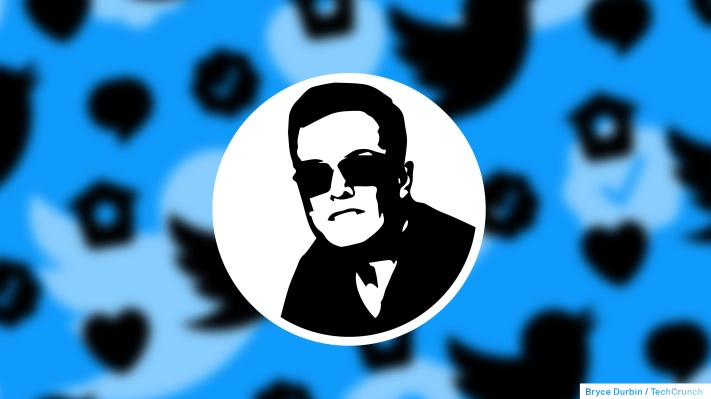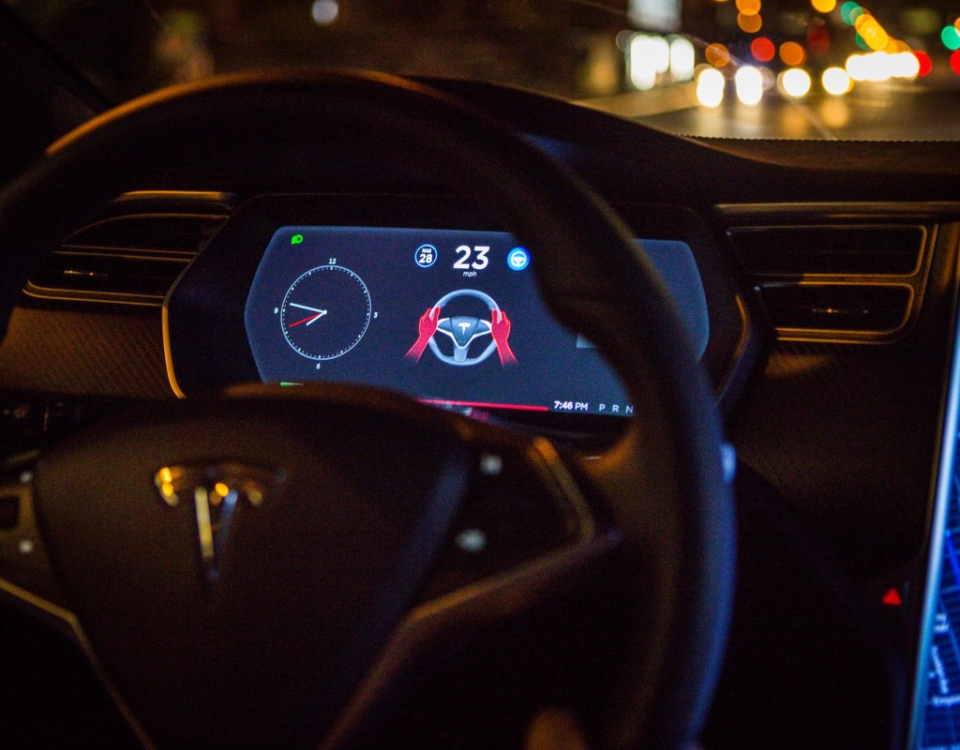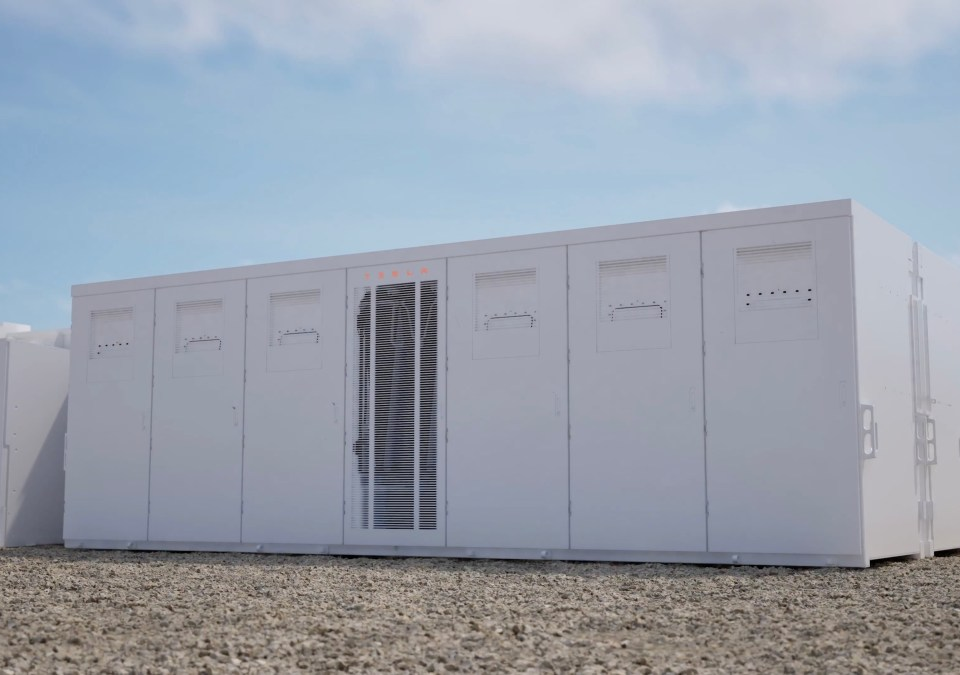
Robotic rehabilitation glove wins Microsoft’s 20th Imagine Cup for student inventors
May 27, 2022
How femtech startup Inne rebooted its hardware launch after COVID-19 chaos
May 28, 2022
So you want to know what’s going on with Elon Musk and Twitter, but you thought maybe it’s a little too late to ask your tech-obsessed buddies for the lowdown. You’ve come to the right place.
Last month, in perhaps the year’s biggest tech news story yet, Elon Musk announced his intent to buy Twitter for $44 billion. But like everything that the Tesla and SpaceX exec touches, it turned to chaos. Now, the relationship between Elon Musk and Twitter has become the greatest “will they or won’t they” of our time ( … OK, maybe more like this month).
Without further ado … Let’s start at the basics.
You sweet summer child. Elon Musk is a South African-born entrepreneur best known for serving as CEO of Tesla (electric car company), SpaceX (let’s go to Mars?) and The Boring Company (something to do with tunnels, idk, don’t worry about it). Early in his career, he founded X.com, a startup that was acquired by the company that became PayPal. He is also the richest man in the world.
Yes, Elon Musk dated the Canadian electronic musician Grimes for several years, and they had two children named X Æ A-Xii and Exa Dark Sideræl. They are no longer dating.
That’s part of it. But as TechCrunch’s Taylor Hatmaker wrote, he “generally conducts himself like a person who doesn’t give a single shit about the literally incomprehensible power differential between himself and basically every other person on the planet.” He has peddled vaccine skepticism to his 92.8 million Twitter followers and said that panic around COVID-19 was “dumb,” his companies have been routinely cited for union busting, poor working conditions, coverups of worker injuries and racist treatment, and he often uses his account to make racist, transphobic jokes. He also allegedly paid an employee $250,000 to sign an NDA to keep her quiet after he sexually harassed her. Overall, he’s pretty insufferable.
If Elon Musk gets his way, Twitter will lose years of progress
At first, Musk flirted with the idea of starting his own social media platform. I regret my past headline choices, but I’ll admit, I didn’t think he would actually offer Twitter $44 billion to buy their platform instead of building one from scratch. Oh, how naive I was.
Before he made the offer, he bought a 9.2% stake in the company, was offered a board seat, declined the board seat … a lot of silly shenanigans.
Musk calls the social media company the “town square” of the internet, but he doesn’t like how it’s run.
Elon, you have no idea what the hell you’re talking about
“Free speech is the bedrock of a functioning democracy, and Twitter is the digital town square where matters vital to the future of humanity are debated,” Musk said. He has declared that his definition of “free speech” is “simply that which matches the law.” This is similar to the approach taken by fringe social networks like Parler and Truth Social, Trump’s new platform. He declared that if people want the law to be different, they can simply just get the government to change it, a shockingly stupid statement from someone who doesn’t understand how hard it is to pass legislation, or just … generally how the world works.
But Twitter’s existing platform guidelines aren’t that stringent. Beyond prohibiting illegal activity, the platform bans hateful conduct (attacking or threatening people based on race, ethnicity, gender, sexual orientation, religion, disability, etc.), depictions of graphic violence, promotion of suicide or self-harm, etc. The platform doesn’t even censor pornographic content, so long as it doesn’t appear in a live video or a profile header.
Yeah.
Elon Musk gets away with tweeting things like … comparing Justin Trudeau to Adolf Hitler, comparing Twitter CEO Parag Agrawal to Joseph Stalin, saying that gender pronouns “suck” … Yet he’s still concerned that free speech isn’t possible on the platform (or is he just concerned that people hold him accountable when he says offensive shit?).
Shortly before Musk vocalized his interest in buying the social media company, the conservative satire site the Babylon Bee was suspended from the platform for making a hateful, transphobic post about a public official. According to Babylon Bee CEO Seth Dillon, who is also a director at Parler, Musk told him that he “might need to buy Twitter” to protect free speech.
Musk reached out to us before he polled his followers about Twitter's commitment to free speech. He wanted to confirm that we had, in fact, been suspended. He even mused on that call that he might need to buy Twitter. Now he's the largest shareholder and has a seat on the board.
— Seth Dillon (@SethDillon) April 5, 2022
The SEC keeps an eye on what the business mogul says on his account. The SEC tries to keep stock trading as fair as possible — that’s why things like insider trading are illegal, AKA, when someone makes investment decisions based on information about a company that isn’t public.
In 2018, Musk tweeted that he had “funding secured” to take Tesla private at $420 a share (yes, that number is intentional), which of course, impacted the company’s stock. In reality, the potential buyout wasn’t close to going through (to this day, Tesla is still a public company). So, both Musk and Tesla had to pay a $20 million penalty, and Musk stepped down from the board.
Anyway, Elon Musk has now had a “Twitter sitter” for about four years, as part of his 2018 deal with the SEC. Honestly, it’s pretty funny that he has a “Twitter sitter.” But it’s not funny that he can impact the stock market (and thus, real people’s finances) by tweeting whatever crosses his mind. Even if he has to be careful when tweeting about Tesla, that doesn’t mean that his posts don’t still impact the market.
Musk is also currently being probed by the SEC because when he first purchased a 9.2% stake in Twitter, he failed to file a form that is required when purchasing over 5% of a company’s shares. Though the public learned of this news on April 4, Musk actually surpassed 5% ownership on March 14, and per SEC rules, he should’ve disclosed that within 10 days (he didn’t). Daniel Taylor, a University of Pennsylvania accounting professor, told the Wall Street Journal that this failure to disclose his purchase likely saved Musk more than $143 million.
It’s not rocket science: Why Elon Musk’s Twitter takeover could be bad for privacy
At a TED event the day he announced his $44 billion bid, Musk said he wants to make Twitter’s algorithm and code open source. That means that anyone would be able to access the publicly available code that powers the platform and iterate on it.
Several U.S. legislators have called for greater transparency around social media algorithms, especially in the wake of former Facebook employee Frances Haugen’s document leaks, which show that Facebook favors content that’s more likely to incite anger. But, like most things in life, there’s more nuance there. While greater transparency might give users more agency over what content they’re served, there are also security issues that open sourcing Twitter’s code and algorithm might pose. More on that from one of our great security reporters, Carly Page, here.
At the same event, Musk stated: “The top priority I would have is eliminating the spam and scam bots and the bot armies that are on Twitter. They’re making the product much worse. If I had a dogecoin for every crypto scam … .”
To combat bot spam, he proposed “authenticating all humans.” While these strategies can help mitigate spam, they can also make it more difficult for marginalized people to speak out. As the Electronic Frontier Foundation wrote in a blog post, “Pseudonymity and anonymity are essential to protecting users who may have opinions, identities or interests that do not align with those in power. For example, policies that require real names on Facebook have been used to push out Native Americans; people using traditional Irish, Indonesian and Scottish names; Catholic clergy; transgender people; drag queens; and sex workers. Political dissidents may be in grave danger if those in power are able to discover their true identities.”
Still, bots have been Musk’s hill to die on. More on that in our next section.
elon spent $44 billion on twitter????? bro it's a free app
— erin chack (@ErinChack) April 25, 2022
Perhaps our valiant protagonist has finally realized that spending $44 billion on a social platform is more trouble than it’s worth. He’s been very concerned about bots on the platform for a while, as evidenced by his fantasy of verifying all humans on Twitter (it’s as if he doesn’t follow any very good bots).
The company itself estimates that bots make up less than 5% of accounts on the site, but “lame duck” CEO Parag Agrawal said that he doesn’t think this calculation could be verified externally, since it requires use of private company data. Musk replied with a poop emoji.

— Elon Musk (@elonmusk) May 16, 2022
He followed up his pixelated fecal matter with a question for Agrawal (can’t they just text each other?): “So how do advertisers know what they’re getting for their money? This is fundamental to the financial health of Twitter.” Apparently, advertisers aren’t as concerned as Musk is. For years, the company has hedged in its earnings reports that the number of fake accounts may be higher than their data shows, which isn’t that outlandish a disclosure. Wouldn’t Musk have actually read a shareholder letter before buying the whole company?
Musk has said that the deal is “on hold” over spam, though he apparently remains committed to the acquisition. Still, this statement caused Twitter stock to drop by 25%. Twitter’s top lawyer and head of policy Vijaya Gadde told staff at an all-hands meeting, according to Bloomberg, that there is “no such thing as a deal being on hold.” He has a contractual obligation to go through with the deal — he can’t just not do it unless he has a really good reason, and according to his contract, having more than 5% of users as bots is not a good enough reason. Speaking of which…
If our twitter bid succeeds, we will defeat the spam bots or die trying!
— Elon Musk (@elonmusk) April 21, 2022
I mean, technically he can get out of the deal. It seems unlikely, but Musk is a chaos demon, so anything is possible. In any case, it takes a while for these deals to close, so we really have until September or October to make popcorn see what goes down.
According to an SEC filing, Twitter could (in layman’s terms) back out of the deal if they get a better offer, or if the board votes against the deal. At first, it seemed like the board was opposed to the idea, as they adopted a “poison pill” defense to make it more difficult for Musk to buy the company. But the shareholders seem to still favor the deal.
On Musk’s end, he would violate the SEC agreement if he tweets disparagingly about the company or its representatives. Does sending a poop emoji to Parag count? It doesn’t seem like Twitter wants to get out of the deal as much as Musk (maybe) does, though, so he can essentially tweet whatever he wants (as long as it’s not material information about Tesla — remember his Twitter sitter?)
There’s also a $1 billion termination fee if the deal doesn’t go through, but that’s chump change to this dude.
Oh, to understand the inner machinations of Elon Musk’s mind. Personally, I’d say he’s full of shit and is using bots as an excuse to back out of the deal — remember how when this all started, he wanted to buy the company because he knew bots were a problem, and he wanted to fix it? He often contradicts himself like this, and it’s not because he’s stupid. He’s being strategic, using his public persona to stir the pot and cause drama. One possibility is that he knows that his back is up against the wall when it comes to getting out of this deal, so he’s basically just being as big an asshole as possible to piss Twitter off and get them to drop the ball.
It also may not be a coincidence that Musk is getting cold feet during a time of macroeconomic upheaval — across the tech industry, companies are staging layoffs left and right, stock prices are dropping and social media competitors like Meta and Snap are cutting costs.
I asked Alex Wilhelm, our resident guy-who-understands-stocks (and editor-in-chief of TechCrunch+), to explain this to me.
He said:
Musk offered to buy Twitter in early April, pushing the value of the company from just under $40 per share to more than $50. While under its recent record highs set in 2021, the price that Musk agreed to pay for Twitter was a comfortable premium over its then-trading price. Why is the price point controversial now, given that it was above recent lows and below recent highs? Because the Nasdaq 100 has lost around 3,000 points since the start of April, meaning that Musk’s deal was priced at a time when the value of tech stocks was higher than it is today. That fact alone could be pushing Musk to try to reprice the deal through, variously, bullying, tweets and bullying tweets.
Maybe? Maybe not? Musk has said that he “doesn’t care about the economics” of the deal, which is an objectively absurd thing to say about a multibillion dollar purchase. I feel bad when I buy a jug of almond milk for $5 from CVS when I know it’s like $2 at Aldi, but Aldi is so much farther of a walk — I digress.
The New York Times obtained Musk’s investment presentation, outlining his plans for the company. He wants to cut its reliance on advertising to less than 50%, yet he also wants to quintuple revenue to $26.4 billion by 2028. In 2020, 90% of the platform’s total revenue came from advertising. I’m no business mogul, but that seems like a tough promise to keep.
There’s a lot we still don’t know about the Elon Musk-Twitter deal — but, we can use what information we have to put some of the pieces together.
When companies go public (meaning, average people can buy stock in them), they have to answer to their shareholders, who can collectively control the price of the company’s stock. So if Twitter did something that shareholders think is stupid, the stock may drop to reflect that attitude. And a company wants their stock to be high, because, you know, stonks.
Musk famously does not get along with the SEC, which regulates publicly traded companies. So if Twitter were private, Musk could tweet unhinged shit about his role as the owner of the platform without worrying about being slapped with more regulations.
Former CEO and co-founder of Twitter, Jack Dorsey allegedly told Musk that he believes the platform could benefit from going private — that way, the platform could have some breathing room to get its act together without the pressure of public stakeholders. Dorsey even tweeted that he believes Musk is the “singular solution” he trusts to operate the company he co-founded.
In principle, I don’t believe anyone should own or run Twitter. It wants to be a public good at a protocol level, not a company. Solving for the problem of it being a company however, Elon is the singular solution I trust. I trust his mission to extend the light of consciousness.
— jack (@jack) April 26, 2022
Or he could take it private just to take it public again. I don’t know. Stonks.
Twitter’s board doesn’t own that much stock in the company. Founder and former CEO Jack Dorsey, who is slated to depart the board, is its largest shareholder with only about 2% of the company. Compared to Facebook, founder Mark Zuckerberg owns around 13% of the company and sits on the board. So, Musk has commented that the board is less aligned with shareholders than other companies.
Remember that Musk does already own 9.2% of Twitter after his purchase a few months ago. So he’s already the company’s largest shareholder, but he’s not on the board yet, because he declined the board seat in order to just buy the company instead. If he had taken the board seat, his contract would have stipulated that he not exceed 14.9% ownership. In other words, if he joined the board, he wouldn’t have been allowed to buy the company outright, as he’s trying to do now.
Elon is the richest man in the world, after all, so if this deal closes, it would be one of the greatest single purchases of a tech company by an individual person ever. Or maybe one of the biggest purchases ever, period? For comparison, this year Microsoft announced its intent to buy Activision Blizzard for $69 billion, which was considered a mammoth deal — and that’s, you know, Microsoft. As opposed to just this one guy.
This deal also gets so much attention because it’s social media — more people use Twitter, care about it and understand its cultural impact than a less consumer-facing company. If Musk gets his way, his content moderation ideas (or lack thereof) could actually affect us in a tangible way, and we learned the hard way that Twitter can actually influence global politics. Just look at how poorly platforms responded to a mass shooting this past week — you think that’s going to get better under an owner who doesn’t believe in permanent bans or much moderation at all?
Also, we care because it’s just so ridiculous. A poop emoji? Really?



